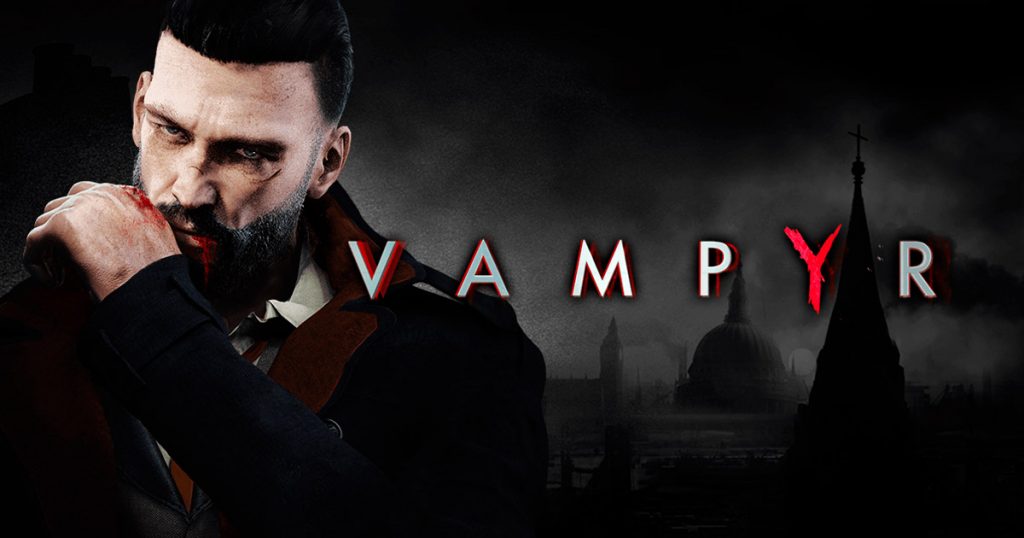
Vampyr is a Switch port of the multi-platform success story from Dontnod entertainment, also of Life is Strange fame. It is published by Focus Home Interactive and released on 29th October 2019.
Vampyr takes you back to early 20th century London and asks you to step into the brogues of the newly-fanged Doctor Jonathan Reid. Your task is to uncover the cause of your sudden thirst for blood and, depending upon how charitable you’re feeling, help or feast upon the various residents you come across. Does Vampyr suck, or will you go batty for it?
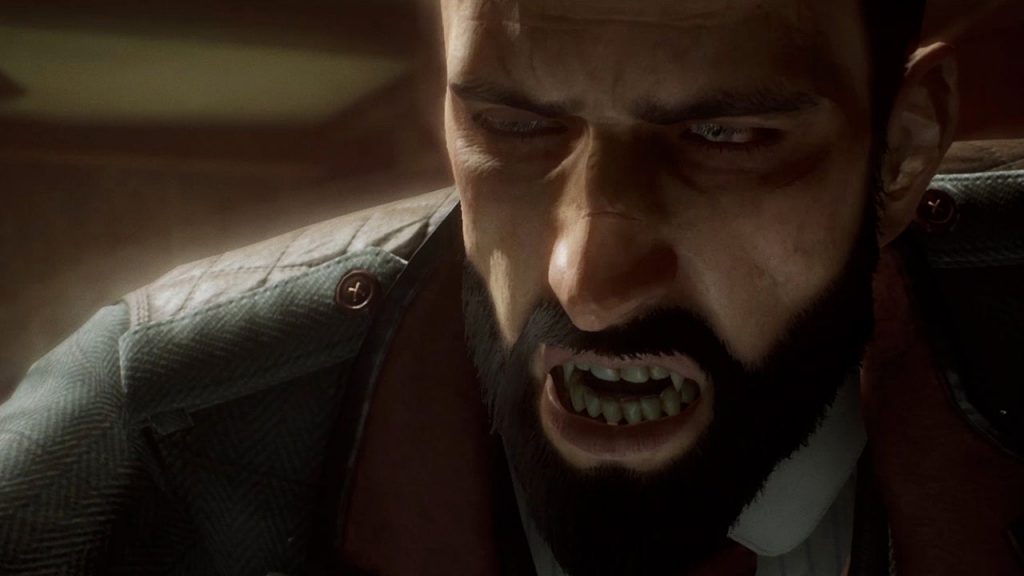
Gameplay
Vampyr is a mish-mash of genres, with the introductory section of the game teaching you how to fight and flee as you are pursued by the Guard of Priwen, a gang of nasty cockney vampire hunters who serve as primary antagonists through much of the game.
Combat is simplistic and offers little challenge at first. Hitting Y triggers a standard melee attack, while the X button allows you to use a secondary weapon, such as a stake or a gun, to stun your opponent. Stun attacks do little damage, but once an enemy is disoriented our ghoulish doctor can sink his pointy teeth into their luscious neck-flesh. Doing so causes Reid’s blood/magic meter to fill, which can be used to trigger skills which initiate more dangerous attacks, defensive manoeuvres or allow Reid to recover his health, all of which can be mapped to the four shoulder buttons once they are unlocked.
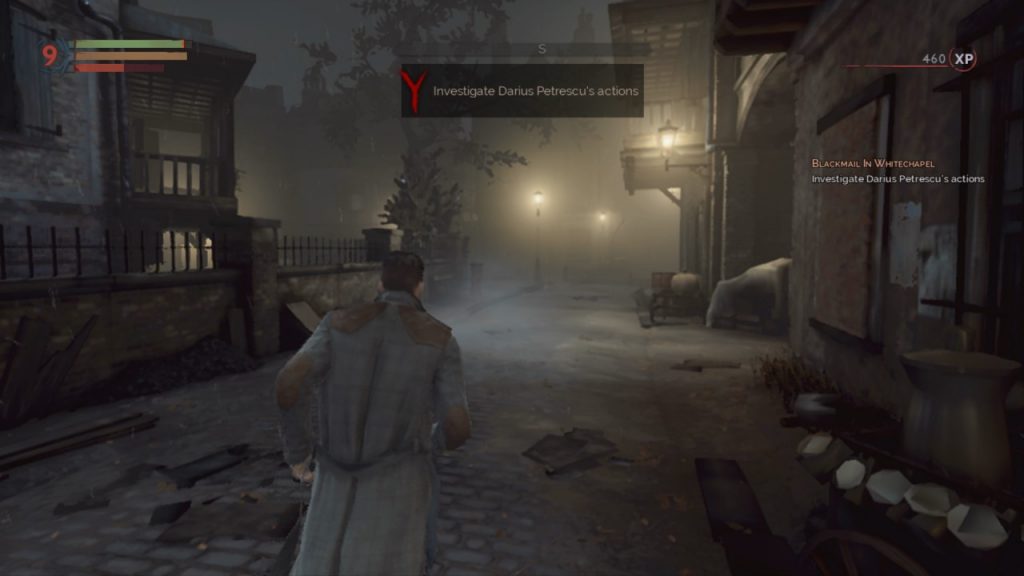
All of this means that fights require a degree of strategy, requiring you to manage groups of enemies and choose which attacks you use carefully. It might be better to use a special attack to take down one of a group of enemies, but doing so will limit your ability to defend or heal. Performing stun attacks will top up your blood meter, making it possible to recover your health, but this will require you to put yourself in harm’s way.
Enemies aren’t particularly smart or aggressive in early stages of the game, making battles something of a cinch, but as you progress they become more challenging.
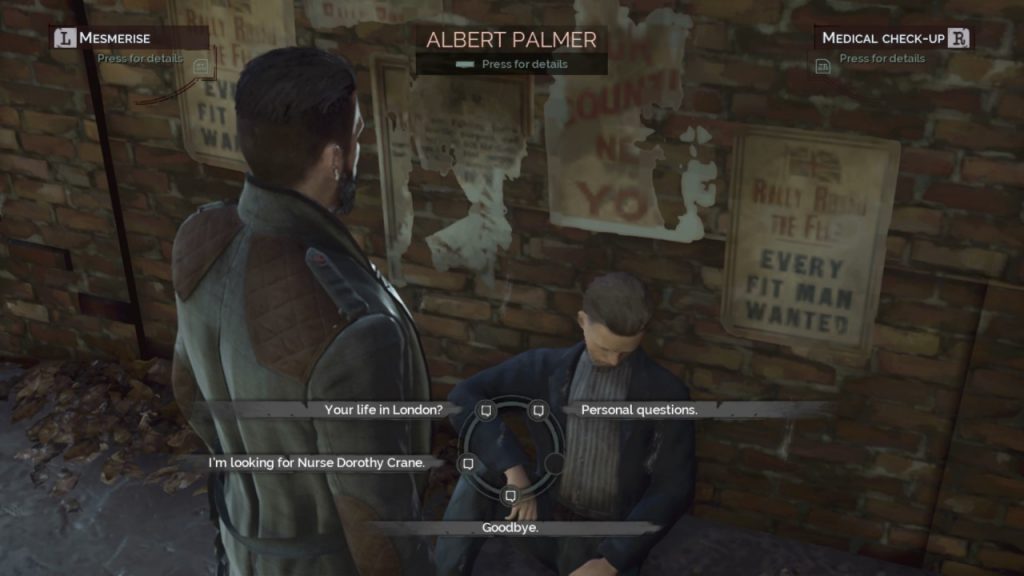
All this being said, Vampyr isn’t really an action game, and shortly after reaching the Pembroke Hospital Doctor Reid is recruited as a residential surgeon. At this point the focus of Vampyr shifts. You will come across a great number of civilians with whom Reid can interact. Interrogating these characters enables Reid to learn more about them, which often unlocks side quests or information regarding other NPCs in the area. This allows Reid to foster better relationships between civilians and generally make the city a nicer place to live.
Learning about NPCs has a secondary, much darker purpose, however. Each NPC is essentially a walking bag of XP points waiting to be sucked out. Unsurprisingly XP points allow Reid to upgrade his abilities and health via one of the many safe-rooms throughout the city. Draining a citizen requires Doctor Reid to learn enough about them that he can encourage them to leave the more populated areas with his vampiric charms. He can then his way with the mesmerised civilian, and often gain access to their belongings via left behind keys.
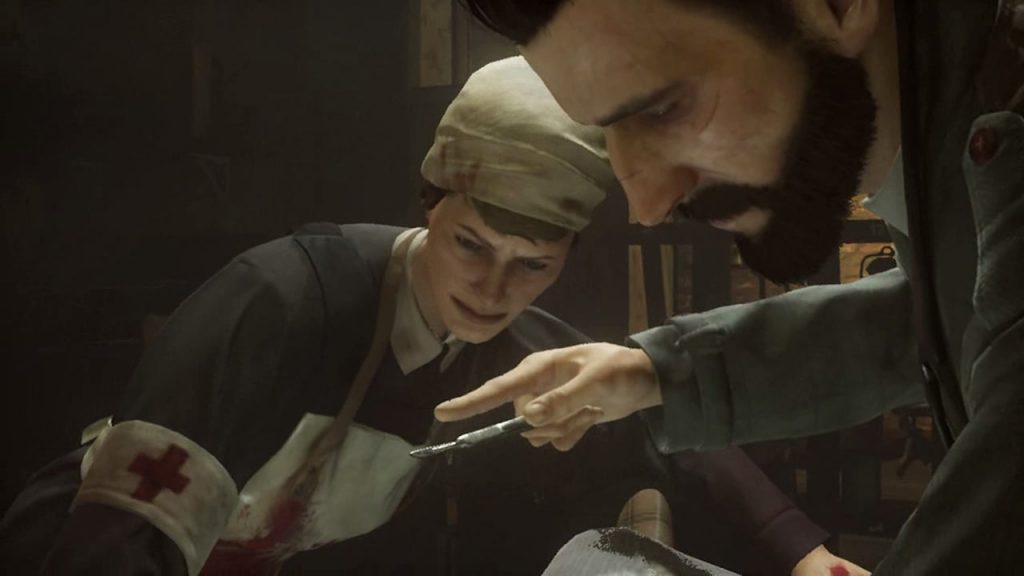
Many NPCs are also stricken down with ailments over the course of the game, and Reid can use various consumables to heal them. Again, this might seem like an altruistic act at first, but healing a civilian has a dual purpose too. A healthy citizen has a higher blood quality, which means they release more XP upon death.
Killing townsfolk isn’t often wise, especially in the earlier stages of the game. Wiping out a character might eliminate your chances of learning about another character, meaning you may be ultimately unable to drain them at a later time. The deaths of civilians will also lower the overall health of the district, and if this drops low enough enemies will start to populate the city in greater numbers and NPCS will start to die of their own accord, leading to the loss of quests and conversational opportunities.
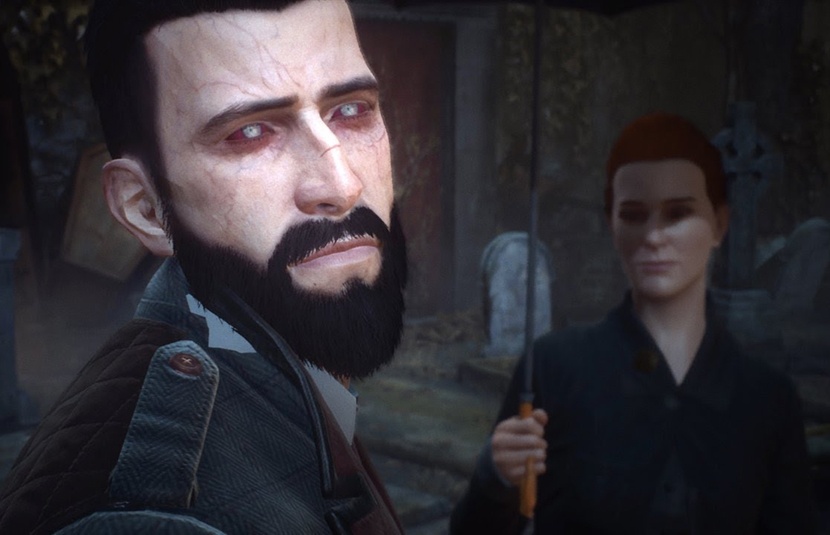
The characters are generally well-written and interesting, and they move around the areas in a believable fashion. I found this slow-paced investigative work quite enthralling, even if the script is at times a little clunky. A slight flaw in this system is that on normal difficulty it is not necessary to drain NPCs at all as fighting enemies and completing quests will lead to XP rewards and battles are not especially challenging even when you’re not levelled up. Increasing your level necessitates resting for a night, which advances the illnesses of any sick citizens so you are not incentivised to level up wantonly. In any case, death has few consequences in this game, as shortly after perishing you are re-spawned adjacent to the area in which you died.
The biggest frustration with the conversation system is that choosing the wrong option in conversation can lead to failing a particular avenue of investigation and/or the loss of side quests. This wouldn’t be so bad if it weren’t so easy to accidentally say the wrong thing. Characters often seem to arbitrarily take offense and shut down a conversation, but confusingly sometimes offending a character can open up new lines of enquiry, meaning it’s not always clear how to approach an interaction. Sometimes even talking to characters in the wrong order can lead to conversation choices being lost. A decision mid-game had particularly terrible consequences and I felt these were poorly telegraphed, and the game auto-saves zealously to prevent you from rolling back when you have made a mistake.
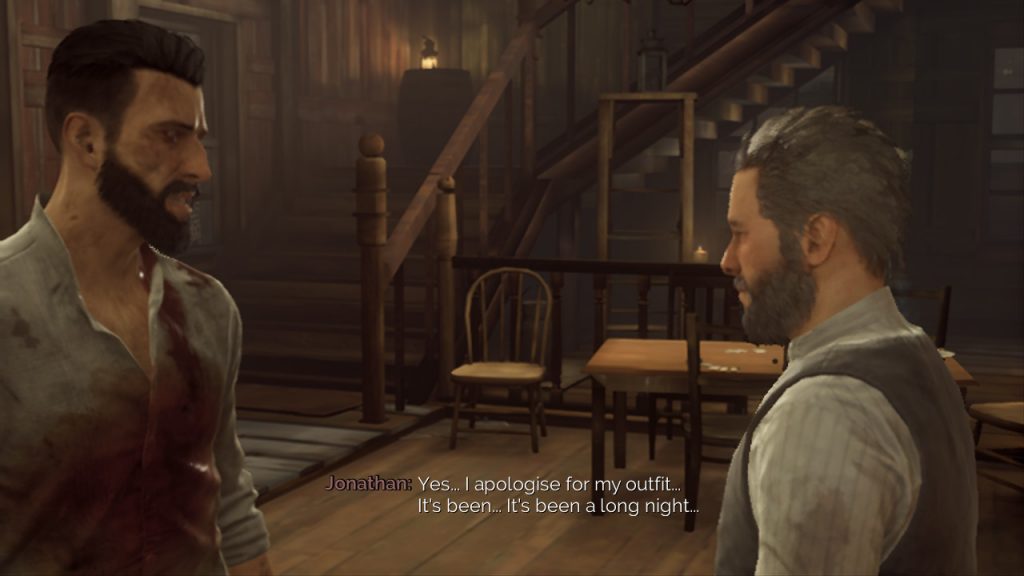
Graphics
At first glance Vampyr looks fantastic for a Nintendo Switch title. Vampyr’s London is dripping with atmosphere, much of it being due to the light from street lamps diffusing through the fog as you wind through the crooked streets. Each district feels like a real place, and buildings are often unique from one another. Character models generally look great, helping to establish the townfolk as real people who might not deserve to be bumped off by a creature of the night.
Unfortunately the Switch port of Vampyr suffers from significant frame-rate issues in both portable and docked mode. Turning suddenly can lead to stutters and performance generally feels rough as you traverse the city. This is a massive shame as playing Vampyr portably is quite an enticing prospect and the frame-rate isn’t really an issue when you’re interrogating NPCs. I’d love to see a patch to improve the Switch port down the line, but as it stands if you have the option I would recommend you try out Vampyr elsewhere unless being able to play on the go* is a major selling factor for you.
*toilet
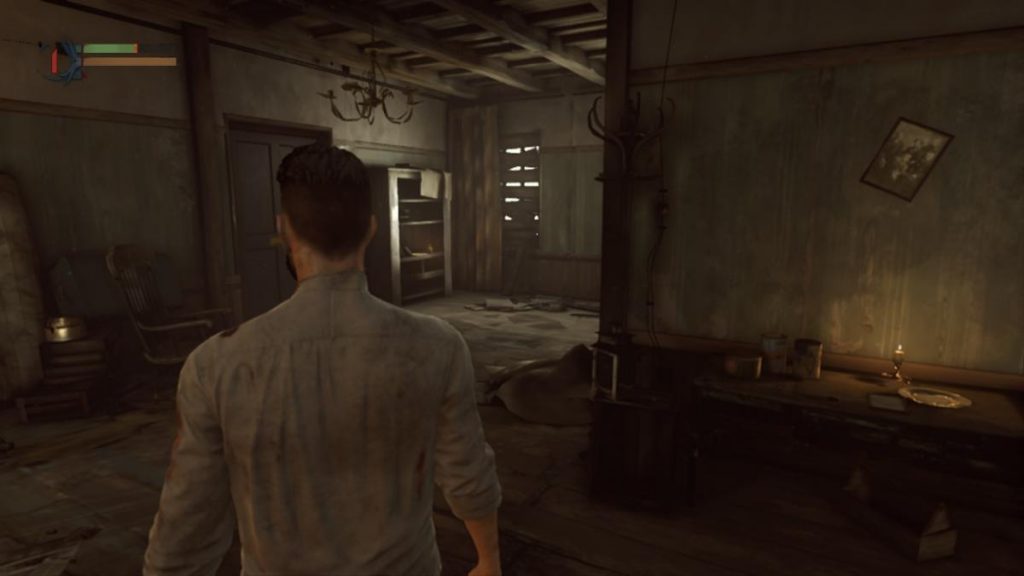
Audio
The music in Vampyr is wonderful. Much of it centres around a lone cello (beautifully played by Eric Maria Couturier) which can move between sounding mournful to menacing in just a few notes, ably reflecting the dark and light aspects of Jonathan Reid’s personality. It’s amazing what a beautiful score can do for a game’s atmosphere, and composer Oliver Deriviere is clearly a major talent in the industry.
Sound design is also generally great, and it’s pretty disquieting to enter a building only to hear the sound of a salivating monstrosity coming from another floor. Voice acting is strong through-out, although some voice clips are triggered and over again in quick succession until they begin to sound comical, particularly during a quest which involves rescuing a claustrophobic civilian from the sewers, in which a distant “I don’t wanna die ‘ere! I wanna see the sky, feel the fresh air!” repeats while you track them down.
Longevity
Vampyr offers a 15 hour campaign, with a completionist run clocking in between 25-30 hours. This isn’t a long campaign for a game with RPG mechanics, but a lot of love and attention has been poured into the story, and if you’re a fan of dark works of fiction there’s plenty to sink your pointy teeth into. The game is also ripe for multiple play-throughs due to the morality mechanic.
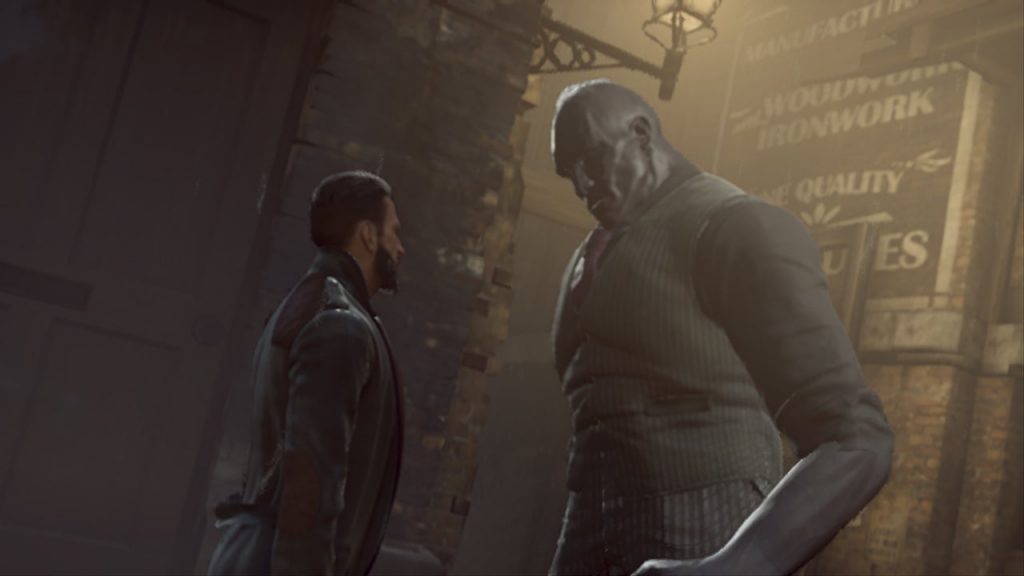
Conclusion
Vampyr is a flawed gem which is unfortunately a bit more flawed on the Nintendo Switch. It feels a bit like a game from a by-gone era, when technical issues and rough plotting often went hand-in-hand with passion and a unique vision. If you’re willing to turn a blind eye to the technical issues you’ll most likely have a ghoulish time, even with the Switch port.
I give Vampyr a vampire-destroying Thumb Culture Silver Award.

Disclaimer: A code was received in order to write this review.
This article was written by Philip Brook

YouTube | FaceBook | Twitter | Instagram
